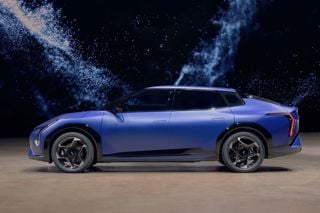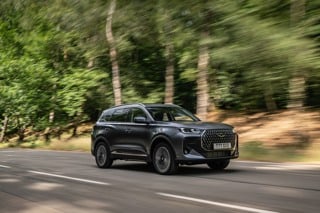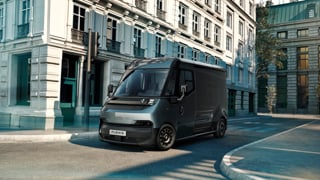Fleet demand for hybrid and fuel-cell vehicles will continue to increase, but if full-electric cars are to succeed, range must be improved and Government must play its part in encouraging uptake, according to experts.
Demand for petrol and diesel cars continued to dominate last year, with a joint 97.2% share of the market, according to the Society of Motor Manufacturers and Traders (SMMT).
Both fuel types saw volumes rise, with petrol up 8.3% and diesel up 3%. However, a key trend was the ongoing rise in demand for alternatively-fuelled vehicles (AFVs), which grew 40.7% to more than 70,000 units – a record 2.8% market share, up from 2.1% in 2014.
Delegates at the International Automotive Summit, organised by the SMMT in London last week, heard that the UK’s car parc in 20 years’ time will be very different compared to that of today – and fleet managers are likely to be in the forefront of driving change.
Several speakers believed that while pure electric cars would become more popular for shorter journeys, both hybrids and fuel-cell vehicles would increasingly take prominence as technology progresses.
Erik Jonnaert, secretary general of the European Automobile Manufacturers’ Association (ACEA), said that where clean air technology was concerned, there were enormous challenges ahead but huge opportunities too.
He explained: “It is going to be important to come up with the right approach and we must look at what we can do in technology with power trains.
“There are still opportunities to improve the internal combustion engine but with alternative powertrains we must have reality. Uptake is very low at around 3% of sales so there must be incentives for better uptake.”
He acknowledged that better battery technology to give fleet drivers an improved range was essential. “
This is a big focus area for us,” continued Jonnaert. “A third of the cost of an electric car is the battery, so we must reduce this cost. We also need governments to help with charging infrastructure because if it doesn’t improve, people will not buy electric cars.”
Jonnaert said that just 5% of emissions came from new cars, while 95% still came from older vehicles and it was important that these should be scrapped.
He said: “How can we encourage car fleet renewal without scrappage incentives? There is an opportunity for governments to encourage big fleets to change their cars more regularly. Everyone could benefit from this type of scheme.”
However, Adrian Hallmark, group strategy director at Jaguar Land Rover, warned delegates not to dismiss the internal combustion engine too soon.
He said: “Adoption of electric cars is inevitable, but I believe the traditional engine is capable of even further refinement.
“Faster fleet recycling is a way forward but offering bonuses to fleets for changing cars every year will take too long to wash through and clean up the air. The whole energy system has to be changed.”
Richard Jory, vice-president global key accounts and global businesses at Shell, warned that there was no “silver bullet” capable of solving the world’s transport problems. Instead, he suggested a “mosaic” of solutions depending on usage and different regions in the world.
“Demand for moving goods and people will double by 2050 and emissions could potentially rise by 80%,” he said. “There is seemingly an insatiable demand for more mobility.
“There has been great progress in fuel economy already, but even with hybrid technology becoming more popular, most cars will still be fossil-fuelled by 2050. Technology must be affordable and it will take time.”
Jory said use of gas and electric vehicles would increase, creating a mosaic of fuels depending on circumstances. Regions would select preferred portfolios from multiple solutions available.
He concluded: “All fuel options will be needed – electric cars for short-term use, for example, but their total cost of ownership is still high.
“We predict that despite electric cars becoming cheaper, by 2030 they will still cost £2,671 more to run than conventionally-fuelled cars over their respective lives.”




















bob the engineer - 17/07/2016 13:25
How about the Monopolies Commission investigating the rip-off pricing structure applied by Ecotricity to its monopoly network funded by the the EU... for a start.